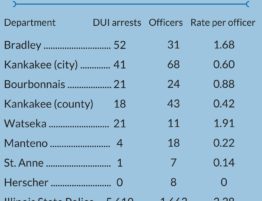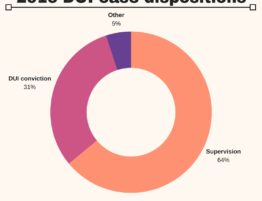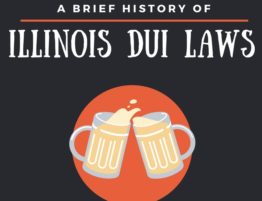
When can police ask a hospital to forcibly draw blood and urine samples from a suspect accused of drunk driving?
It’s a legal question that’s been simmering for the last five years and now a state appeals court in Illinois is weighing in.
Late last month, the Appellate Court ruled that a section of the state’s DUI law allowing police to ask medical professionals to draw blood and urine evidence without a warrant is unconstitutional. The decision stemmed from a case dating back to 2009 when Ralph Eubanks was accused of a hit-and-run that killed a mother and seriously injured her 6-year-old son.
Police arrested Eubanks shortly after the fatal crash and took him to a local hospital demanding blood and urine samples. He refused but the hospital staff took the samples anyway.
They found ecstasy, cocaine and cannabis in his system. Eubanks was convicted of first- degree murder and sentenced to 40 years in prison in 2014. The decision in December means he must be re-tried.
“What the decision means is that the police should obtain a warrant, unless exigent circumstances exist, before obtaining a nonconsensual blood or urine draw from a driver suspected of driving under the influence who caused death or personal injury,” Patricia Mysza, deputy defender for Illinois’ 1st Judicial District, told the Chicago Tribune.
There was a similar case in Kankakee County. In 2012, a state appeals court ruled that evidence from a forced blood draw could not be used in court, arguing that the police officer requesting the draw acted unconstitutionally.
That case stemmed from a far less serious traffic accident in Bradley in 2009 and resulted in a suspension of the driver’s license. Still, the defendant prevailed to have the blood draw evidence suppressed.
While these cases won’t impact most Illinois drivers, particularly those who drive responsibly, they are important to note for all of us: DUI laws change more frequently than most realize. And not just through the actions of lawmakers, but judges.










